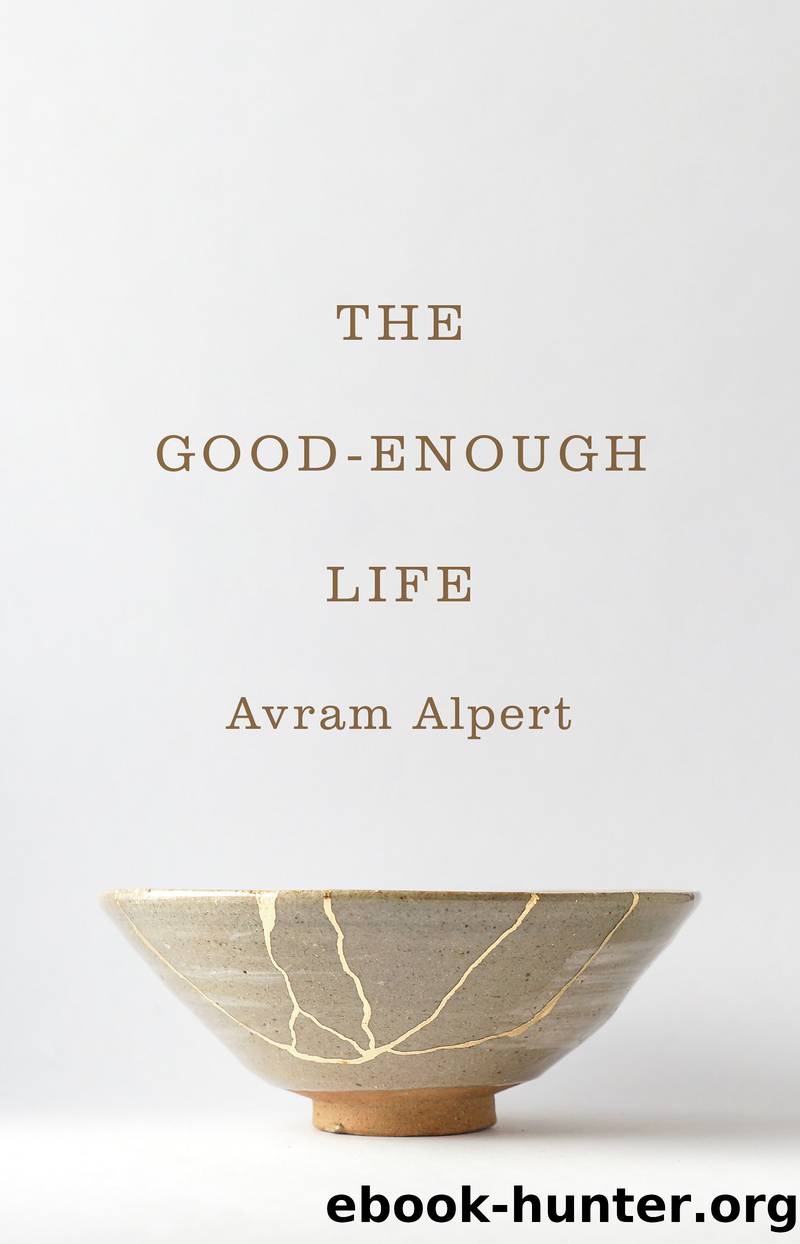The Good-Enough Life by Avram Alpert

Author:Avram Alpert
Language: eng
Format: epub
Publisher: Princeton University Press
Published: 2022-01-20T00:00:00+00:00
Limiting the Positional Economy
Iâve spent most of this chapter discussing the macro social dynamics of developing a connected world that provides a good-enough life for all. To this end, Iâve largely focused on economic theory. But as Iâve noted here and in previous chapters, economic inequality is not the only cause of our greatness-oriented society. It is also the product of what Fred Hirsch called âthe positional economy.â As I use the term, it refers to a variety of things ranging from awards, leadership positions, and beachfront properties, to the attention one receives from a friend or mentor or lover versus what they give another person. The positional economy can also be an intense site of ableism, racism, and sexism, as, even among people with similar material wealth, conscious or unconscious prejudices can influence who wins jobs, awards, attention, or respect.168 Creating an economic democracy must be coincident with continued work for equal rights across these spheres of identity.
The existence of a positional economy is one of the arguments that libertarians like philosopher Robert Nozick have used to discredit the idea of material equality. Even if we get rid of vast differences in wealth, Nozick says, we will simply find other ways to compare ourselves and create new centers of power.169 Sigmund Freud similarly doubted that overcoming the problem of material inequality would do much to stem the problems of aggression and social discord, which he traced more to sexual than economic competition.170 In a sense, this is the corollary of the problem with which I started this chapter: just as human relationships find their limits in social systems, so can social systems be upended by the tragedies of human relationships.
Several science fiction writers have considered this problem, including Cory Doctorow in Down and Out in the Magic Kingdom (2003) and Ursula Le Guin in The Dispossessed (1974). In Doctorowâs novel, automation has cured scarcity and death, and people can live forever going through different adventures without concern for food or health. But because there is still a positional economy, they trade on âwhuffie,â a kind of currency of esteem. (Doctorow doesnât investigate the potential problems of inherited prejudices in his esteem economy.) The more whuffie one collects, the more one can do, including, in the main plot of the novel, taking control of Disneyland. In Le Guinâs The Dispossessed, a radical anarchist colony is established on a nearby moon. âPropertarianismâ is abolished, and everyone lives for the collective. âDonât egoizeâ is the colonyâs parenting version of saying âSay please and thank you.â While inequality is largely annulled materially, it excels positionally. Expertiseâor a reputation for expertiseâbecomes particularly meaningful. While no material benefits accrue, the appointed experts still feel the satisfaction of having the power to make major decisions.
In a brief, astute reading of Doctorowâs novel, Peter Frase notes that the book correctly perceives that even material abundance cannot overcome the problem of power. Nevertheless, he suggests that it is a fallacy to assume that the new positional economy is merely a replication of the old material one.
Download
This site does not store any files on its server. We only index and link to content provided by other sites. Please contact the content providers to delete copyright contents if any and email us, we'll remove relevant links or contents immediately.
The remains of the day by Kazuo Ishiguro(7601)
Tools of Titans by Timothy Ferriss(7003)
The Black Swan by Nassim Nicholas Taleb(6237)
Giovanni's Room by James Baldwin(5938)
Inner Engineering: A Yogi's Guide to Joy by Sadhguru(5931)
The Way of Zen by Alan W. Watts(5829)
The Six Wives Of Henry VIII (WOMEN IN HISTORY) by Fraser Antonia(4815)
The Power of Now: A Guide to Spiritual Enlightenment by Eckhart Tolle(4795)
Astrophysics for People in a Hurry by Neil DeGrasse Tyson(4641)
Asking the Right Questions: A Guide to Critical Thinking by M. Neil Browne & Stuart M. Keeley(4627)
12 Rules for Life by Jordan B. Peterson(3780)
The Ethical Slut by Janet W. Hardy(3534)
Skin in the Game by Nassim Nicholas Taleb(3503)
Housekeeping by Marilynne Robinson(3443)
The Art of Happiness by The Dalai Lama(3409)
Double Down (Diary of a Wimpy Kid Book 11) by Jeff Kinney(3302)
Skin in the Game: Hidden Asymmetries in Daily Life by Nassim Nicholas Taleb(3290)
Walking by Henry David Thoreau(3250)
12 Rules for Life: An Antidote to Chaos by Jordan B. Peterson(3215)
